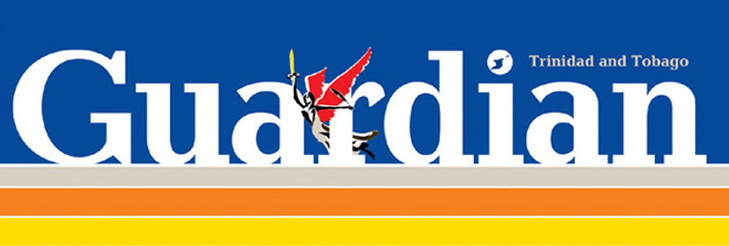For example, when writing up his research on nationalism in South Asia the anthropologist Benedict Anderson spoke of an “imagined community”. It was a useful translation device. It led readers to insights about being a citizen or member of a nation. Like the various objects that helps us imagine this community like coinage, daily newspapers, flags, anthems, passports, census, maps and much more.
Sometimes a metaphor or analogy is less appropriate. When a student does this it often reveals little more than their worldview or intellectual biases and maybe they should read more widely. When a person in power gets it wrong though it’s worth looking closer.
This leads us to Central Bank Governor Mr Jwala Rambarran and the analogy he used while speaking about the lack of venture capital financing in the Caribbean to a seminar of business executives. People sociologists call “elite” members of society, the ones with Capital to invest.
Rambarran’s analogy described Christopher Columbus as “a master entrepreneur” who “discovered” the Caribbean thanks to “venture capital financing” and “created a model for the modern Caribbean entrepreneur to follow.”
Now no one is discounting the value of entrepreneurship and innovation in transforming the Caribbean’s future economic agenda. In fact at first glance the comparison even sounds promising. Yet on closer inspection its suggestive insights are built on historical inaccuracies, simplistic interpretation and an International Monetary Fund (IMF) worldview– a combination never in the Caribbean’s interests.
Today many primary school children can tell you there were societies already in the Caribbean when Columbus mistakenly encountered these islands. The head of our most important financial entity however prefers the version of events where Columbus discovers the Caribbean.
For the Governor, Columbus’ voyage of discovery is a good analogy for the process of modern venture capital financing today which he describes as: “long term investment in risky, young companies, often with unproven management teams addressing new technologies in uncertain markets.”
Suddenly Columbus and his men did not murder, kidnap and rob those they met on arrival in the Caribbean. No, this was “innovation” and entrepreneurial. Which begs the question should the modern Caribbean investor today behave in a like manner?
The logic of analogy depends on similarity so it suggests on some level the inventor of the ‘Columbus was a venture capitalist’ analogy is suggesting such a translation and expecting his audience to get the suggestion too.
Who might appreciate such a worldview? Most are wealthy disciples of the Western narrative of progress and the top-down prescriptions of neoliberal entities like the IMF, World Bank and WTO. Prescriptions that consistently structured the under-development of ex-colonial states and populations, denying and continuing to deny the conditions best suited to the equitable development of small island nations.
At the Harvard Kennedy School of Government, the Federal Reserve Bank of New York, and the IMF all places Governor Rambarran spent time studying, training and working, neoliberal orthodoxy doesn’t care about bottom-up worldviews.
They don’t care about the Caribbean or historical accuracy or evidence that highlight policies of under-development or arguments about reparations. Such thinking gets in the way of making money for the already wealthy and increasing economic inequality. That is the real essence of capitalism. It’s never been about progress for all.
In his new book Capital in the 21st Century, French economist Thomas Piketty provides hard numbers that demonstrate how over the long-term, returns from capital investment including “venture capital financing” out pace the real growth of wages. In the end wealth inequality will rise exponentially. Wealth not wages is what matters. In this world some individuals and their companies get wealthy while the great majority of society are enslaved to wage labour.
This type of argument and honesty doesn’t come up in the Governor’s analogy. It isn’t part of the top-down worldview. It is inconvenient to talk about the real legacies of Columbus and European mercantilism.
Don’t say it too loudly but in financial terms, reintroducing similarly unproven ideas and the risky investment that led to the genocide of our indigenous populations, the Atlantic slave trade, and laid in place long standing, structural inequalities between rich and poor is exactly the ethos intended by the speaker.
After all, accumulating wealth by stealing the labour, culture and life opportunities of others in “world changing disruptions” is a practice common to both Columbus and transnational financial elites.
http://www.guardian.co.tt/columnist/2014-04-27/columbus-was-not-venture-capitalist

 RSS Feed
RSS Feed